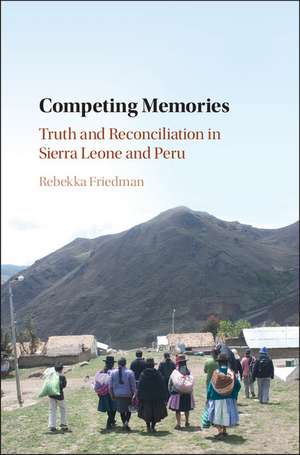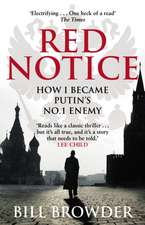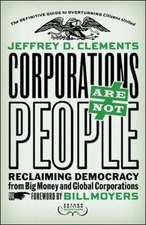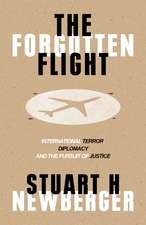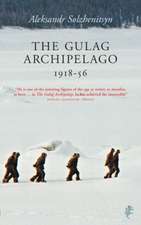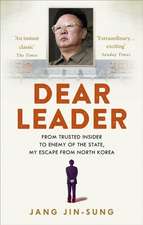Competing Memories: Truth and Reconciliation in Sierra Leone and Peru
Autor Rebekka Friedmanen Limba Engleză Hardback – 23 aug 2017
Preț: 692.50 lei
Preț vechi: 778.08 lei
-11% Nou
Puncte Express: 1039
Preț estimativ în valută:
132.51€ • 138.72$ • 109.64£
132.51€ • 138.72$ • 109.64£
Carte tipărită la comandă
Livrare economică 07-21 aprilie
Preluare comenzi: 021 569.72.76
Specificații
ISBN-13: 9781107185692
ISBN-10: 1107185696
Pagini: 214
Ilustrații: 6 b/w illus.
Dimensiuni: 160 x 237 x 18 mm
Greutate: 0.48 kg
Editura: Cambridge University Press
Colecția Cambridge University Press
Locul publicării:New York, United States
ISBN-10: 1107185696
Pagini: 214
Ilustrații: 6 b/w illus.
Dimensiuni: 160 x 237 x 18 mm
Greutate: 0.48 kg
Editura: Cambridge University Press
Colecția Cambridge University Press
Locul publicării:New York, United States
Cuprins
1. Justice and reconciliation in enduring conflicts; 2. Contextual variances, transitional justice and peace-building: a historical overview; 3. Procedural reconciliation; 4. Underdevelopment, peace-building, and marginilization: the establishment of a restorative agenda in Sierra Leone; 5. Localism and pragmatic solidarity in Sierra Leone; 6. The shining path and political violence: the establishment of a punitive human rights based approach; 7. Memory activism and the politics of the past; 8. Conclusions: context, transformation, and holism in transitional justice.
Recenzii
'Rebekka Friedman's sophisticated theorization of procedural reconciliation is borne from extensive efforts to listen. She has paid close attention not only to the train of theorists who have sought to make sense out of political efforts to deal with violent pasts but also to scores of people who have undertaken these efforts and lived through these pasts in Peru and Sierra Leone. She then translates what she learns into a generous synthesis, one that draws from the best insights of the opposing perspectives of theorists and participants and weaves them together into one of the most conceptually mature books in this field's literature to date.' Daniel Philpott, Notre Dame, Indiana
'Dr Friedman's superb study of post-war transitional justice and reconciliation provides a nuanced analysis of how specific community social contexts affect transitional justice processes. This important study traces how individuals' experiences and informal processes at community and national levels can operate at odds with formal transitional justice processes. It is analytically sophisticated, but also encyclopaedic in its engagement with cases. This work will challenge conventional wisdom and will provoke controversy.' Will Reno, Northwestern University, Illinois
'The emphasis on reconciliation by the South African Truth and Reconciliation Commission began a new discourse integrating restorative justice with forgiveness as a critical element of national healing. Competing Memories breaks new ground by exploring how this emphasis on reconciliation has played itself out in both Sierra Leone and Peru, addressing the complex interplay between truth, justice and reconciliation. Friedman introduces 'procedural reconciliation' as an alternative framework, reinforcing common norms and procedures for dealing with conflict and addressing its legacies. It's a must read for those working in the field.' Yasmin Sooka, Central European University and Foundation for Human Rights in South Africa
'Competing Memories is an important and timely contribution to the field of transitional justice. The book offers thoughtful consideration of overlooked dimensions of transitional justice firmly rooted in two valuable case studies, Peru and Sierra Leone. Friedman is a keen observer of the local, and highlights the novel concept of procedural reconciliation in her reflection on truth and memory practices in the aftermath of atrocity. The book gives a fresh perspective on the complexity of post-conflict justice. Competing Memories is insightful and reflective. Highly recommended reading for the transitional justice practitioner and scholar alike.' Fionnuala Ni Aolain, University of Minnesota and Ulster University, Northern Ireland
'This book makes a critical intervention in post-conflict literature by defining the very real challenges that face truth commissions even after they have cleared standard bureaucratic hurdles. Just as 'procedural democracy' is seen by some as a necessary but insufficient ingredient for actual democracy, Friedman's work shows that 'procedural reconciliation' risks the same fate, and she offers an insightful contribution to the field of post-conflict scholarship.' Mneesha Gellman, Emerson College, Boston
'Dr Friedman's superb study of post-war transitional justice and reconciliation provides a nuanced analysis of how specific community social contexts affect transitional justice processes. This important study traces how individuals' experiences and informal processes at community and national levels can operate at odds with formal transitional justice processes. It is analytically sophisticated, but also encyclopaedic in its engagement with cases. This work will challenge conventional wisdom and will provoke controversy.' Will Reno, Northwestern University, Illinois
'The emphasis on reconciliation by the South African Truth and Reconciliation Commission began a new discourse integrating restorative justice with forgiveness as a critical element of national healing. Competing Memories breaks new ground by exploring how this emphasis on reconciliation has played itself out in both Sierra Leone and Peru, addressing the complex interplay between truth, justice and reconciliation. Friedman introduces 'procedural reconciliation' as an alternative framework, reinforcing common norms and procedures for dealing with conflict and addressing its legacies. It's a must read for those working in the field.' Yasmin Sooka, Central European University and Foundation for Human Rights in South Africa
'Competing Memories is an important and timely contribution to the field of transitional justice. The book offers thoughtful consideration of overlooked dimensions of transitional justice firmly rooted in two valuable case studies, Peru and Sierra Leone. Friedman is a keen observer of the local, and highlights the novel concept of procedural reconciliation in her reflection on truth and memory practices in the aftermath of atrocity. The book gives a fresh perspective on the complexity of post-conflict justice. Competing Memories is insightful and reflective. Highly recommended reading for the transitional justice practitioner and scholar alike.' Fionnuala Ni Aolain, University of Minnesota and Ulster University, Northern Ireland
'This book makes a critical intervention in post-conflict literature by defining the very real challenges that face truth commissions even after they have cleared standard bureaucratic hurdles. Just as 'procedural democracy' is seen by some as a necessary but insufficient ingredient for actual democracy, Friedman's work shows that 'procedural reconciliation' risks the same fate, and she offers an insightful contribution to the field of post-conflict scholarship.' Mneesha Gellman, Emerson College, Boston
Notă biografică
Descriere
A rigourous analysis of context in transitional justice, examining the successes and failures of truth and reconciliation commissions in post-conflict settings.
